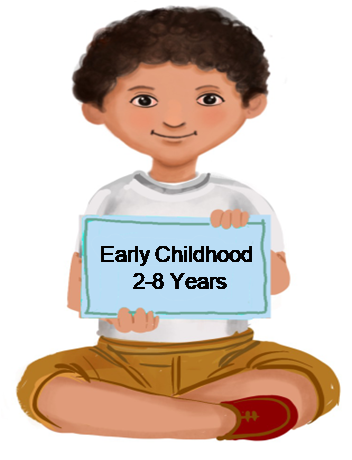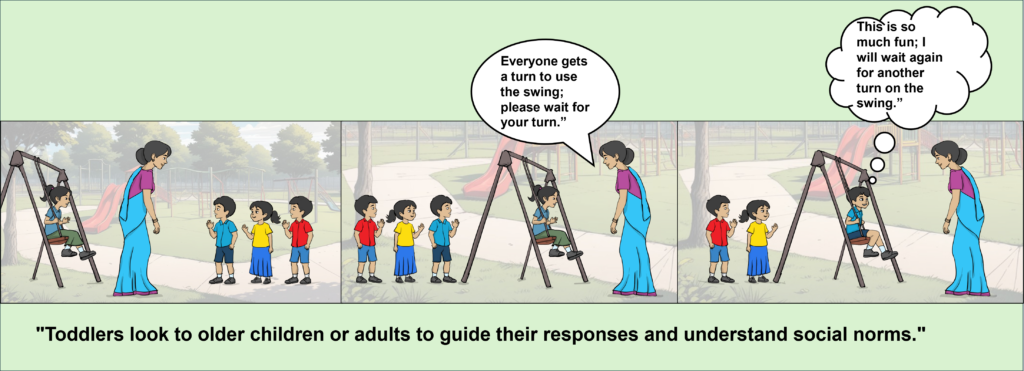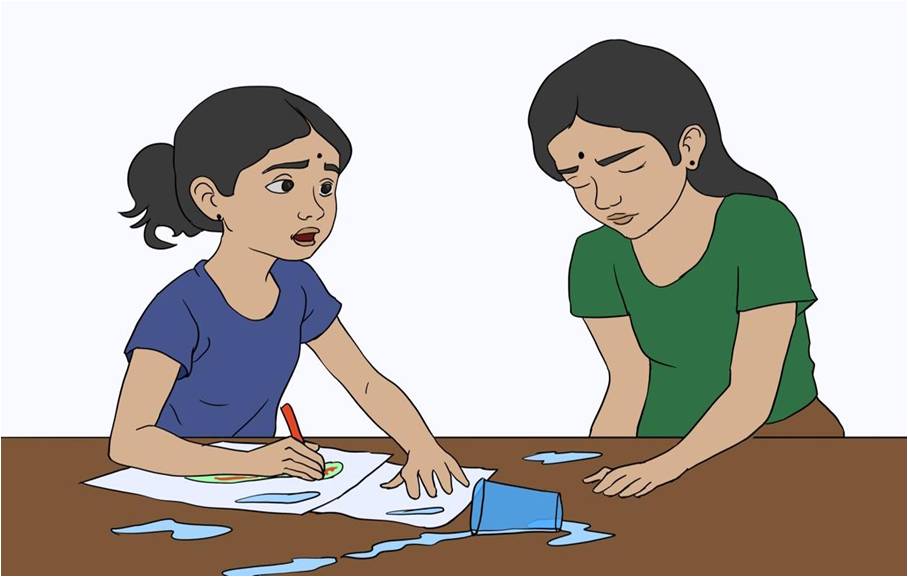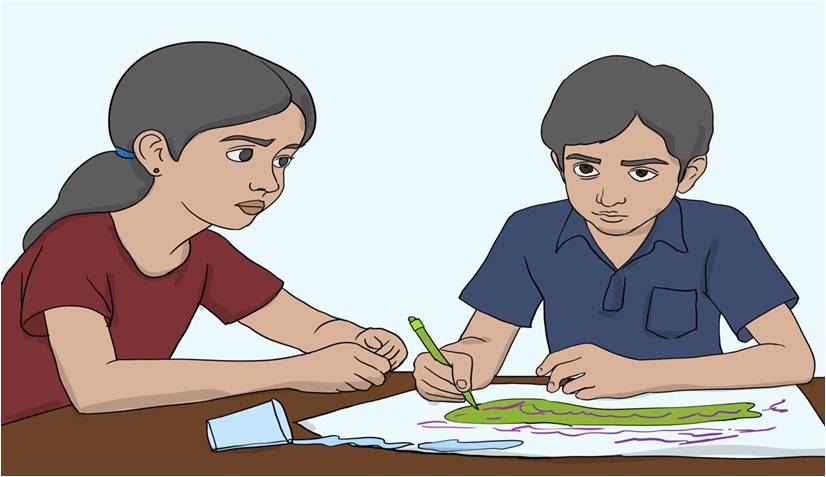
Moral Development
Module 31
Introduction
This module analyses how young children develop the capacity to regulate their behaviours and make ethically correct decisions. Early childhood is marked as a critical period, and these formative years are when a child begins to understand concepts like right and wrong and learn to manage his/her emotions and impulses. These abilities are crucial to success in school and life.
Learning Objectives
Overall Objectives
- Gain a clear understanding of what moral development and self-control entail in the context of early childhood.
- Discover practical strategies and activities that can be used to enhance moral development and self-control in young children.
- Develop effective methods to foster moral values and self-control in early childhood education.
Specific Objectives
- Know and understand the various theories of moral development.
- Recognize and understand the importance of different factors that play a key role in the moral development and the ability to self-control in early years.
- Promote self-reflection among parents and educators on their own beliefs, practices and biases regarding moral development and self-control.
Moral Development
Moral development in early childhood is the gradual process through which infants/children acquire an understanding of right and wrong, develop empathy, learn to regulate their behaviours according to moral principles and internalize norms. This kind of a development helps in the formation of a moral identity.
Some of the key components of moral development include:
- Understanding of rules – Children begin to grasp the concept of rules within their social contexts, they learn about expectation from their behaviours and importance of following those rules to maintain order.
- Empathy and Compassion – Early childhood marks as a critical period for the development of empathy – the ability to understand and relate to the feelings of others.
- Modelling – Parents, caregivers and peers play a significant role in shaping a child’s moral development. Children observe, imitate and internalize values through interactions and experiences.
Moral development in early childhood is a dynamic process that lays foundation for later moral reasoning and ethical decision-making.
Video: Moral Development
Key Concepts
Foundations of Morality
Innate Moral Capacities in Early Childhood –
Moral capacities in early childhood refers to the early emergence of behaviours that form the foundation for moral development. Some of the key aspects of these innate capacities include:
Empathy – When an infant hears another baby cry, their immediate response is to start crying, this basic empathetic response lays a groundwork for developing more complex forms of empathy.

Imitation – Infants/toddlers tend to imitate the actions of those around them. This innate tendency allows them to learn socially accepted behaviours through observation.

Sense of Fairness – Infants/toddlers tend to protest when they perceive unequal treatment which indicates they have an elementary understanding of fairness.

Social Referencing – Infants and toddlers generally look to adults or older children for cues on how to respond in social situations, this ability to seek guidance from others contributes to the early understanding of social norms and expected behaviours.

These innate moral capacities provide the foundation for more complex moral development as children grow older. Parents, caregivers and educators play a crucial role in nurturing these inclinations through supportive and morally rich environments.
Jean Piaget’s Theory of Moral Development (Moral Realism and Moral Relativism)
Jean Piaget is the father of Child Psychology who developed a theory of human cognitive development from birth through adolescence. The posits of his theory are the foundation for the understanding of evolution in children.
Piaget’s theory is based on the idea that children’s understanding of morality evolves as they grow and he identified two broad stages:
Heteronomous Morality [Moral Realism] (5-9 years)
At this stage, rules are viewed as absolute and as handed down by an authority figure such as Parents and Teachers. This makes rules seem unchangeable. Due to Cognitive immaturity and the power of adults to insist on compliance, younger children unquestionably respect rules. They believe breaking a rule always leads to consequences, regardless of the situation or intention.
Example – Keerthi, aged 6, is upset with Sanvi, who accidentally spilt water on her drawing. Keerthi believes Sanvi must face a consequence for her actions, not realising it was an accident. (Here, Keerthi is unable to see that Sanvi’s action was an accident.)

Autonomous Morality [Moral Relativism] (9 years through adolescence)
Cognitive development, peer interactions and gradual independence from adult control allow children to transition to the second stage. Here, children start to understand that people make rules and that rules can be modified; they also tend to realize that intentions and motives (and not just the consequences) become the basis for judging behaviour. In this stage, children also develop a sense of fairness and justice based on agreements rather than mere adherence to authority.
Example – Rahul, aged 11, forgives Anya, who accidentally spills water and ruins his drawing, understanding that it was not done on purpose. Both the children then discuss how the drawing can be redone. (Here, Rahul realises that Anya’s action is an accident and that she did not intend to ruin his drawing on purpose.)

Piaget believed that children naturally progress through these stages and make a concrete understanding of right and wrong. He emphasizes on the importance of social interactions, relationships and experiences in shaping a child’s moral reasoning.
Moral Emotions
Moral emotions in early childhood refer to the feelings and emotional responses that are associated with moral situations and interpersonal interactions. Some of the key emotions include:
- Empathy – In early childhood, children begin to demonstrate empathy by showing concern for others, for example, a child attending and trying to comfort another child who has fallen and gotten hurt.
- Guilt – It is an emotion that arises when a child understands they have done something wrong or harmed another person.
- Shame – In early childhood, children may experience shame when they are caught misbehaving or make a mistake in front of others.
- Pride – It is a positive moral emotion that stems from a sense of accomplishment or adherence to moral values.
- Gratitude – Children may experience and express gratitude when they receive help or gifts from others which leads to a sense of moral obligation.
These moral emotions play a significant role in a child’s moral development by guiding their moral reasoning, shaping their moral identity and fostering prosocial behaviours.
Video: Moral Emotions
Lawrence Kohlberg’s Moral Development Theory
Lawrence Kohlberg’s theory of moral development is a framework that explains how people develop their sense of morality and ethical decision-making over time. Kohlberg built on the work of psychologist Jean Piaget and it provides an understanding of how individuals evolve their moral reasoning from childhood to adulthood.
His theory outlines the progression of moral reasoning through six distinct stages, which are grouped into three levels.
- Pre-Conventional Level (Childhood) – At this level, morality is understood in terms of direct consequences of following or not following the rules, with a focus on avoiding consequences or gaining rewards. Here, behaviours are greatly influenced by rewards that may follow.
- Stage 1 (Obedience and Punishment) – At this stage, individuals believe that actions are morally wrong if they lead to punishment. For example, a child may obey to take turns while playing on the slide in school to avoid getting scolded by the teacher.
- Stage 2 (Individualism and Exchange) – Children act based on self-interest and see morality as an exchange where individuals satisfy their own needs. At this stage, self-interest plays a major role in determining whether children will follow rules. For example, a child may share a toy or candy with another child because they expect something in return.
- Conventional Level (Adolescence) – At this level, moral reasoning is guided by the desire to maintain relationships, gain social approval (these take precedence over self-interest) and adhere to rules established by society.
- Stage 3 (Good Interpersonal Relationships) – Moral reasoning is driven by the desire to be seen as a “good” person in the eyes of others. One’s choices are influenced by the impact they will make on the relationships and on the prominent persons in one’s social circle. For example, an individual may display kindness to be viewed as a good person.
- Stage 4 (Maintaining Social Order) – Individuals respect authority, follow rules, and see laws as important for the stability of society. For example, a person obeys traffic laws not because of personal gain but because they believe that following the law is necessary for social order.
- Post-Conventional Level (Adulthood) – Individuals move beyond societal norms and rules, evaluating them based on ethical principles like justice, human rights and equality.
- Stage 5 (Social Contract and Individual Rights) – In this stage, individuals begin to understand that laws and rules are social contracts that should be flexible and promote the welfare of everyone. For example, someone might support civil rights movements because they believe the law should protect the rights of all individuals, even if it means changing or breaking current laws.
- State 6 (Universal Ethical Principles) – Individuals follow self-chosen ethical principles that are universal and apply to everyone. These principles include justice, dignity, and equality. Their conscience takes the upper hand when faced with a dilemma between law and conscience. For example, a student witnesses a classmate being bullied and excluded by others. Even though the popular opinion in the group is to ignore the classmate, the student steps in to defend and befriend them, believing in the principle of fairness and equality.
Video: Lawrence Kohlberg’s Theory of Moral Development
Cultural Influences on Moral Development
- Cultural Values and Beliefs – Children learn and understand moral standards through socialization within their cultural context, for example, cultures that focus on collectivism encourages cooperation and harmony while cultures that value individualism may encourage autonomy and personal responsibility.
- Role of Family and Community – Cultural rituals and traditions within families shape children’s understanding of right and wrong, empathy and prosocial behaviour.
- Cultural Norms and Taboos – Children learn to adhere to cultural norms and avoid taboos based on rewards, punishment and reinforcement.
- Ethical Dilemmas and Reasoning – The idea of moral reasoning and decision-making processes are influenced by cultural considerations such as the importance of social harmony, group cohesion and religious learnings.
Video: Cultural Influences on Moral Development
Overall, it is important to note that moral development varies across cultures due to the differences in values, norms and practices. What is considered morally acceptable or unacceptable may vary between cultures leading to diverse approaches to moral reasoning and behaviour.
Activities that promote moral development during early childhood
| Activity | Description | Suggestion |
| Storytelling | ▪ Narrating stories where characters face moral dilemmas or challenges. ▪ Encourage children to think about how characters can make decisions/choices based on kindness, fairness and honesty. ▪ Discuss the outcomes and learnings from the stories. | “Ramya studying in 1st grade, one day after school goes to the supermarket with her mother. She sees a candy box on the billing counter and takes one candy from the box without telling anyone. On the way back home, she informs her mother and the mother is unhappy about Ramya did.” Ask children what they think about Ramya’s actions and what could be her response when her mother displayed disappointment in her. |
| Emotion Guessing Game | ▪ Show images of different facial expressions and ask children to guess the emotions and what could have caused those feelings. ▪ Conduct role play scenarios where children can act out different emotions which can then be guessed. | Prepare laminated cards of different facial expressions, children can be asked to guess emotions or imitate those emotions. This can also be paired with the story-telling, where during the narration, children can be asked to pick the appropriate expression for characters in different scenes. |
| Treasure Hunt | ▪ Hide objects/cards relevant to specific values or hide them with values written on them. ▪ Have the children search for it and discuss the meaning of the values and how it can be demonstrated in daily lives. | Children can be asked to discuss situations in which they have displayed a certain value that they have found. For example, a child says “I helped my friend to tie his shoelace after assembly today.”(for kindness) |
| Team Games | ▪ Encourage children to play in teams which enable them to understand rules, it also helps them understand the concept of cooperation. ▪ Group games help children to learn that rules need to be followed not to avoid punishment but because it is the right thing to do. | For example, a game called “Buddy Walk” Children are asked to walk a certain path with one leg of each of them tied together (three-legged race). This helps children understand the importance of cooperation and communication, it also emphasizes on shared responsibility. |
| Source and Attribution of images: All images used in the above Assets and Aids are originally created. |
| This digital material has been developed by the Sri Sathya Sai Vidya Vahini Inclusive Education Project, a unit of Sri Sathya Sai Central Trust, Prasanthi Nilayam, as a collaborative offering in the service of our nation. |